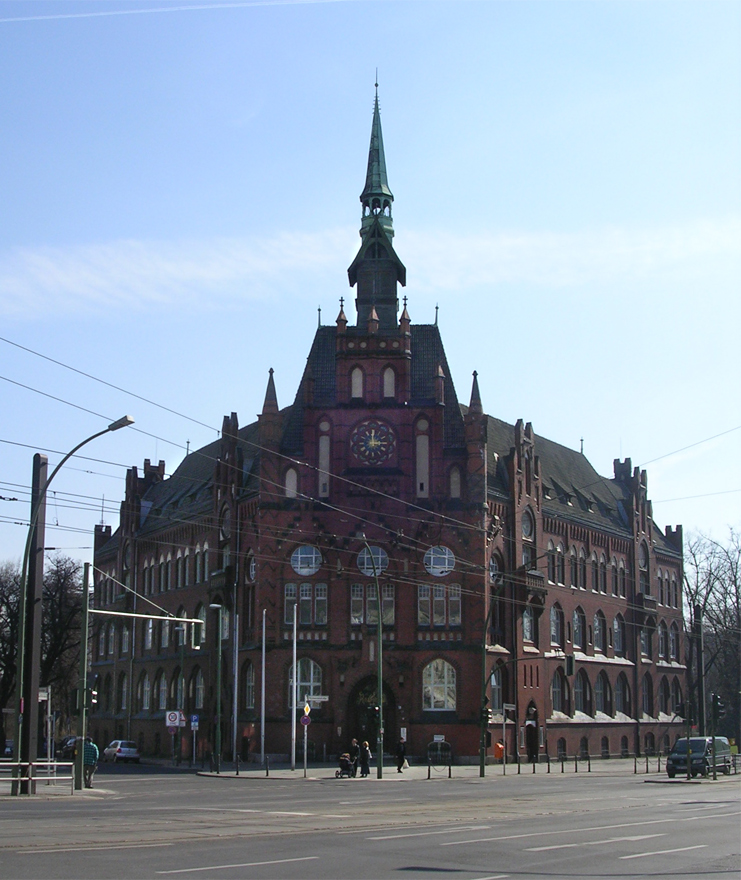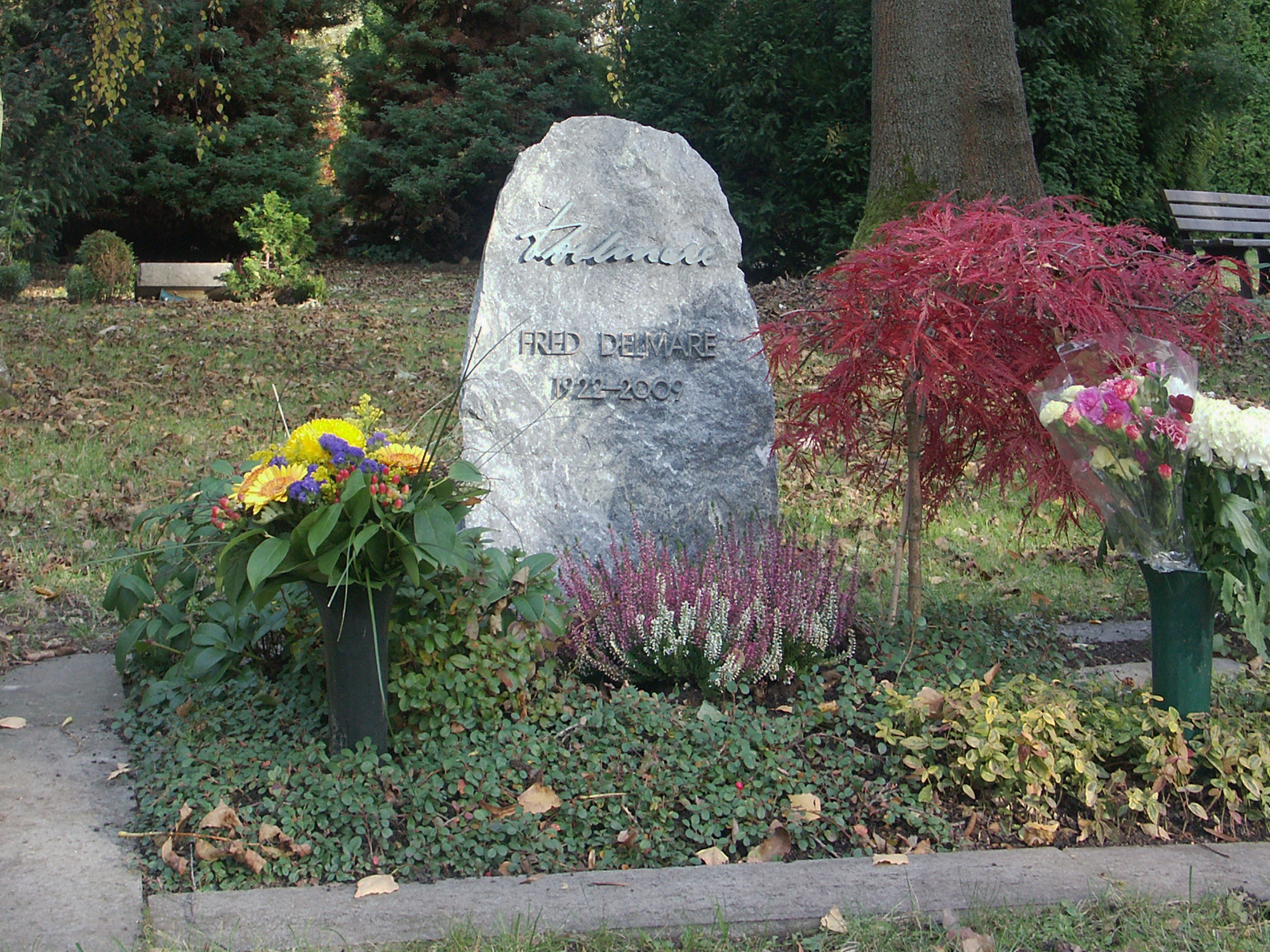|
The Legend Of Paul And Paula
''Die Legende von Paul und Paula'' (; English: ''The Legend of Paul and Paula'') is a 1973 tragicomic East German film directed by Heiner Carow. A novel by Ulrich Plenzdorf named ''Die Legende vom Glück ohne Ende'' was based on this film. The film was extremely popular on release and drew 3,294,985 viewers (the GDR had a population at the time of around 17 million). However, due to the film's political overtones it was almost not released. East German leader Erich Honecker personally decided to allow it to be shown. Today it is one of the best-known East German films. Plot summary Paul is a minor bureaucrat in East Berlin, where he lives with his wife and their son in a modern high-rise apartment building. While he is well educated and professionally ambitious, he is generally bored with his life. He cannot relate to his unsophisticated wife, who is repeatedly unfaithful, even bringing men home to their apartment when Paul is away. Paula, a grocery store cashier and single mot ... [...More Info...] [...Related Items...] OR: [Wikipedia] [Google] [Baidu] |
Heiner Carow
Heiner Carow (19 September 1929 – 1 February 1997) was a German film director and screenwriter. His 1986 film ''So Many Dreams'' was entered into the 37th Berlin International Film Festival. The following year, he was a member of the jury at the 38th Berlin International Film Festival. In 1990, his film ''Coming Out'' won the Silver Bear for an outstanding artistic contribution at the 40th Berlin International Film Festival. Carow died in 1997, aged 67. His grave is located in Babelsberg. Selected filmography * ''Sheriff Teddy'' (1957) * '' Sie nannten ihn Amigo'' (1959) * '' Die Hochzeit von Länneken'' (1964) * ''The Legend of Paul and Paula'' (1973) * ''So Many Dreams'' (1986) * ''Coming Out Coming out of the closet, often shortened to coming out, is a metaphor used to describe LGBT people's self-disclosure of their sexual orientation, romantic orientation, or gender identity. Framed and debated as a privacy issue, coming out of ...'' (1989) * ' (1992, TV film) * '' ... [...More Info...] [...Related Items...] OR: [Wikipedia] [Google] [Baidu] |
Berlin-Lichtenberg
Lichtenberg () is a quarter (''Ortsteil'') of Berlin in the homonymous borough (''Bezirk'') of Lichtenberg. Until 2001 it was an autonomous district with the localities of Fennpfuhl, Rummelsburg, Friedrichsfelde and Karlshorst. History The historic village of Lichtenberg, today also called ''Alt-Lichtenberg'', was founded about 1230, due to the German colonization of the territory of Barnim. The settlement around the fieldstone church was first mentioned in a 1288 deed, its estates were acquired by the neighbouring City of Berlin in 1391. ''Alt-Lichtenberg'' suffered severely during the Thirty Years' War and remained a small village at the Berlin gates until in the late 18th century Prussian noblemen like general Wichard Joachim Heinrich von Möllendorf built their residences here. In 1815 the Lichtenberg estate became a property of the Prussian chancellor Karl August von Hardenberg. The village came to be a residential area and a suburb of Berlin from the mid 19th century on ... [...More Info...] [...Related Items...] OR: [Wikipedia] [Google] [Baidu] |
1970s German-language Films
Year 197 ( CXCVII) was a common year starting on Saturday (link will display the full calendar) of the Julian calendar. At the time, it was known as the Year of the Consulship of Magius and Rufinus (or, less frequently, year 950 ''Ab urbe condita''). The denomination 197 for this year has been used since the early medieval period, when the Anno Domini calendar era became the prevalent method in Europe for naming years. Events By place Roman Empire * February 19 – Battle of Lugdunum: Emperor Septimius Severus defeats the self-proclaimed emperor Clodius Albinus at Lugdunum (modern Lyon). Albinus commits suicide; legionaries sack the town. * Septimius Severus returns to Rome and has about 30 of Albinus's supporters in the Senate executed. After his victory he declares himself the adopted son of the late Marcus Aurelius. * Septimius Severus forms new naval units, manning all the triremes in Italy with heavily armed troops for war in the East. His soldiers embark on an ... [...More Info...] [...Related Items...] OR: [Wikipedia] [Google] [Baidu] |
East German Films
This is a list, in year order, of the most notable films produced in the Soviet Occupation Zone of Germany and the socialist German Democratic Republic (GDR, East Germany) from 1945 until German Reunification in October 1990. The state owned East German film company DEFA produced about 800 feature films between 1946 and 1992. Besides DEFA, the state broadcaster DFF and the Deutsche Hochschule für Filmkunst (now the Filmuniversität Babelsberg) were the only other organizations in the GDR that produced feature films for cinematic release, although far fewer than DEFA. DEFA also produced about 750 animated movies and more than 2500 documentaries and short films. DEFA feature films are accessible and licensable as part of DEFA's entire film heritage on the PROGRESS archive platform. For an alphabetical list of articles on East German films see :East German films. 1945–1949 (the Soviet Sector of Germany) Note that the German Democratic Republic formally came into existence in ... [...More Info...] [...Related Items...] OR: [Wikipedia] [Google] [Baidu] |
Films Set In Berlin
Berlin is a major center in the European and German film industry. It is home to more than 1000 film and television production companies and 270 movie theaters. Three hundred national and international co-productions are filmed in the region every year. Babelsberg Studios and the production company UFA are located outside Berlin in Potsdam. The city is also home of the European Film Academy and the German Film Academy, and hosts the annual Berlin International Film Festival which is considered to be the largest publicly attended film festival in the world. www.europeanfilmacademy.org, Accessed 19 December 2006. See also Berlin Film Festival www.berlinale.de. Retrieved 12 November 2006. This is a list of films whose |
1973 Films
Events January * January 1 - The United Kingdom, the Republic of Ireland and Denmark 1973 enlargement of the European Communities, enter the European Economic Community, which later becomes the European Union. * January 15 – Vietnam War: Citing progress in peace negotiations, U.S. President Richard Nixon announces the suspension of offensive action in North Vietnam. * January 17 – Ferdinand Marcos becomes President for Life of the Philippines. * January 20 – Richard Nixon is Second inauguration of Richard Nixon, sworn in for a second term as President of the United States. Nixon is the only person to have been sworn in twice as President (First inauguration of Richard Nixon, 1969, Second inauguration of Richard Nixon, 1973) and Vice President of the United States (First inauguration of Dwight D. Eisenhower, 1953, Second inauguration of Dwight D. Eisenhower, 1957). * January 22 ** George Foreman defeats Joe Frazier to win the heavyweight world boxing championship. ** A ... [...More Info...] [...Related Items...] OR: [Wikipedia] [Google] [Baidu] |
Rolf Ludwig
Rolf Ludwig (28 July 1925 – 27 March 1999) was a German actor. He appeared in more than one hundred films from 1952 to 1997. Selected filmography References External links * 1925 births 1999 deaths Male actors from Stockholm German male film actors {{Germany-actor-stub ... [...More Info...] [...Related Items...] OR: [Wikipedia] [Google] [Baidu] |
Fred Delmare
Werner Vorndran (24 April 1922 – 1 May 2009), known professionally as Fred Delmare, was a German actor. Life and work Werner Vorndran was the son of a carpenter and a seamstress and grew up in Hüttensteinach at Sonneberg in Thuringia, where as an adolescent he appeared on a peasant stage. After his time in the Volksschule he learned the trade of a tool and die maker. As military volunteer he went to the marine in Bremerhaven. At the local municipal theatre he took his first drama lessons with the theatre manager Karl Georg Saebisch 1940 and 1941 and worked as background actor in an operette production. During his military service he suffered a severe abdominal injury, for that he was cured until the end of war.Fred Delmare at |
Heidemarie Wenzel
Heidemarie is a given name. Notable people with the name include: * Heidemarie Bártová (born 1965), female diver from the Czech Republic * Heidemarie Fuentes, American actress and producer * Heidemarie Hatheyer (1918–1990), Austrian film actress * Heidemarie Stefanyshyn-Piper (born 1963), American Naval officer and former NASA astronaut * Heidemarie Steiner (born 1944), German figure skater and coach * Heidemarie Wieczorek-Zeul Heidemarie Wieczorek-Zeul (born 21 November 1942) is a German politician and a member of the Social Democratic Party (SPD) since 1965. Early life and career Wieczorek-Zeul (pronounced ''VEE‐choreck TSOIL'') began her career as a teacher 1965� ... (born 1942), German politician (SPD) Fictional characters * Heidemarie W. Schnaufer, a character from the anime/manga '' Strike Witches'' {{given name German feminine given names ... [...More Info...] [...Related Items...] OR: [Wikipedia] [Google] [Baidu] |
Angela Merkel
Angela Dorothea Merkel (; ; born 17 July 1954) is a German former politician and scientist who served as Chancellor of Germany from 2005 to 2021. A member of the Christian Democratic Union (CDU), she previously served as Leader of the Opposition from 2002 to 2005 and as Leader of the Christian Democratic Union from 2000 to 2018. Merkel was the first female chancellor of Germany. During her tenure as Chancellor, Merkel was frequently referred to as the ''de facto'' leader of the European Union (EU), the most powerful woman in the world, and since 2016 the leader of the free world. Merkel was born in Hamburg in then-West Germany, moving to East Germany as an infant when her father, a Lutheran clergyman, received a pastorate in Perleberg. She obtained a doctorate in quantum chemistry in 1986 and worked as a research scientist until 1989. Merkel entered politics in the wake of the Revolutions of 1989, briefly serving as deputy spokeswoman for the first democratically elected Go ... [...More Info...] [...Related Items...] OR: [Wikipedia] [Google] [Baidu] |
Chancellor Of Germany
The chancellor of Germany, officially the federal chancellor of the Federal Republic of Germany,; often shortened to ''Bundeskanzler''/''Bundeskanzlerin'', / is the head of the federal government of Germany and the commander in chief of the German Armed Forces during wartime. The chancellor is the chief executive of the Federal Cabinet and heads the executive branch. The chancellor is elected by the Bundestag on the proposal of the federal president and without debate (Article 63 of the German Constitution). The current officeholder is Olaf Scholz of the SPD, who was elected in December 2021, succeeding Angela Merkel. He was elected after the SPD entered into a coalition agreement with Alliance 90/The Greens and the FDP. History of the office The office of Chancellor has a long history, stemming back to the Holy Roman Empire, when the office of German archchancellor was usually held by archbishops of Mainz. The title was, at times, used in several states of German-spea ... [...More Info...] [...Related Items...] OR: [Wikipedia] [Google] [Baidu] |
Berlin Ostbahnhof
Berlin Ostbahnhof (German for Berlin East railway station) is a main line railway station in Berlin, Germany. It is located in the Friedrichshain quarter, now part of Friedrichshain-Kreuzberg borough, and has undergone several name changes in its history. It was known as Berlin Hauptbahnhof from 1987 to 1998, a name now applied to Berlin's new central station at the former Lehrter station. Alongside Berlin Zoologischer Garten station it was one of the city's two main stations; however, it has declined in significance since the opening of the new Hauptbahnhof on 26 May 2006, and many mainline trains have been re-routed on the North–South mainline through the new Tiergarten tunnel, bypassing Ostbahnhof. History Early history The station opened on 23 October 1842 as Frankfurter Bahnhof, the terminus of an railway line to Frankfurt (Oder) via Fürstenwalde (Spree). In 1845 the previously independent Berlin–Frankfurt railway merged into the '' Niederschlesisch-Märkische-Eis ... [...More Info...] [...Related Items...] OR: [Wikipedia] [Google] [Baidu] |






